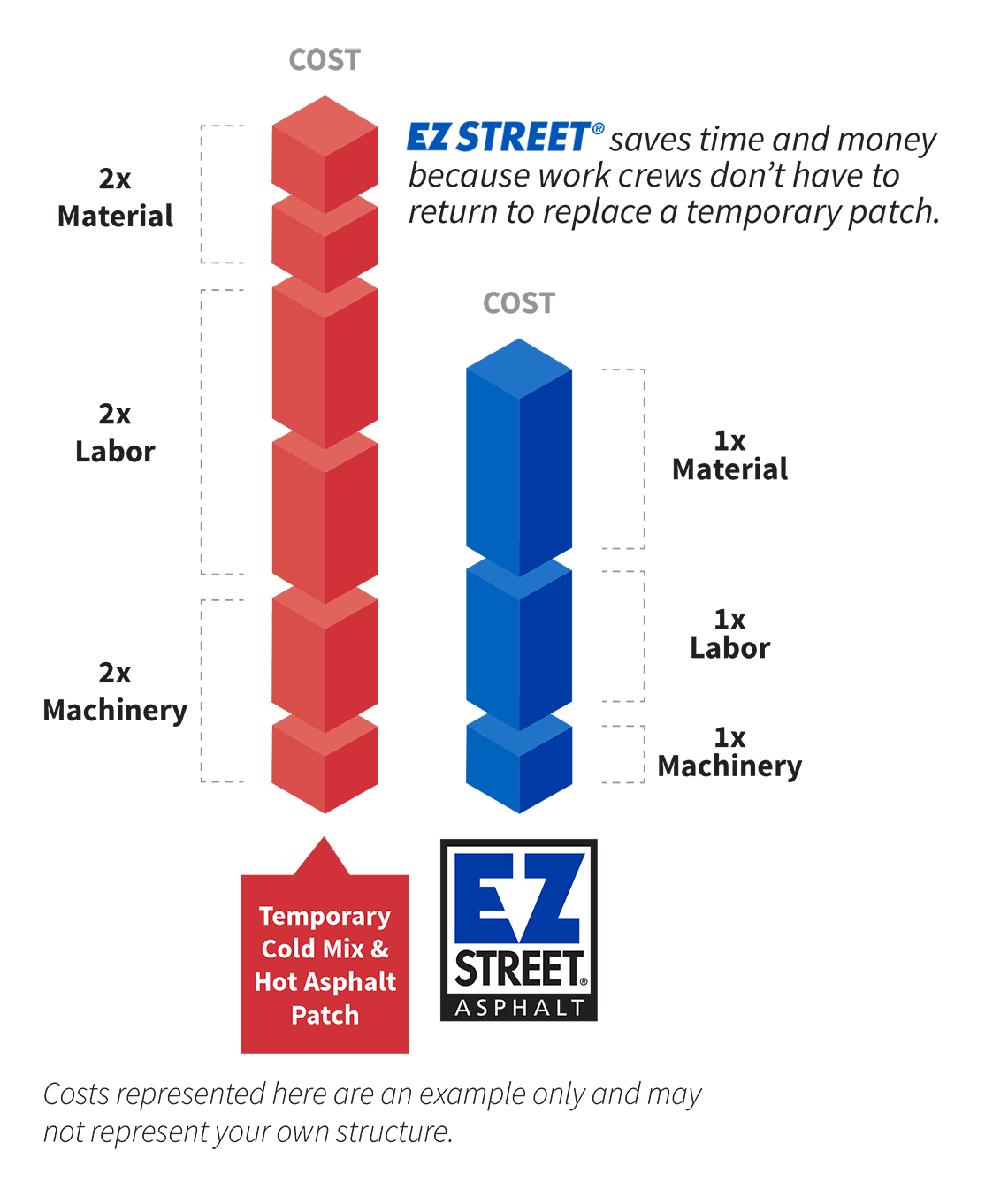The what and why of asphalt repair
Clean, smooth pavement says a lot of good things about a place. Broken pavement – with cracks, bumps and potholes – creates an entirely different impression.
Whether it's pavement on a municipal road, a shopping center parking lot or the driveway to one's home, the condition of the asphalt serves an aesthetic purpose. It's simply more pleasing to the eye if there are no breaks in the smooth spread of roadway. On a subconscious level, the brain perceives the place to be stable, perhaps even prosperous. A visitor's level of trust naturally rises.
But just as important, there is a strong functional need for intact, smooth, pothole-free driveways and parking areas. Not only does clean pavement allow unencumbered travel, it can prevent losses. Fewer tire blowouts, damaged car axels and trip-fall injuries place less liability on those parties responsible for its asphalt repair upkeep. If the property is up for sale or rent, broken asphalt can earn a negative mark in a buyer's checklist. Asphalt repair can help a lot.
Yet it doesn't make sense to completely repave a parking lot where problems exist on a small percent of the pavement. This is why asphalt repair is not only economical, it is far more practical.
Asphalt problems typically begin with small cracks, sometimes from heavy traffic, and they increase with time. This permits water to penetrate underlayment, which leads to additional damage. The best asphalt repair solution is to fix cracks in asphalt and potholes early.

- Increased Traffic Disruption
- Decreased Productivity
- Risk of Further Damage
- Decreased Time on the job & Traffic Disruption
- EZ Street Works in Water & All Weather
- Storage Life (12 Months)
*Costs represented here are an example only and may not represent your own cost structure. E&O.E